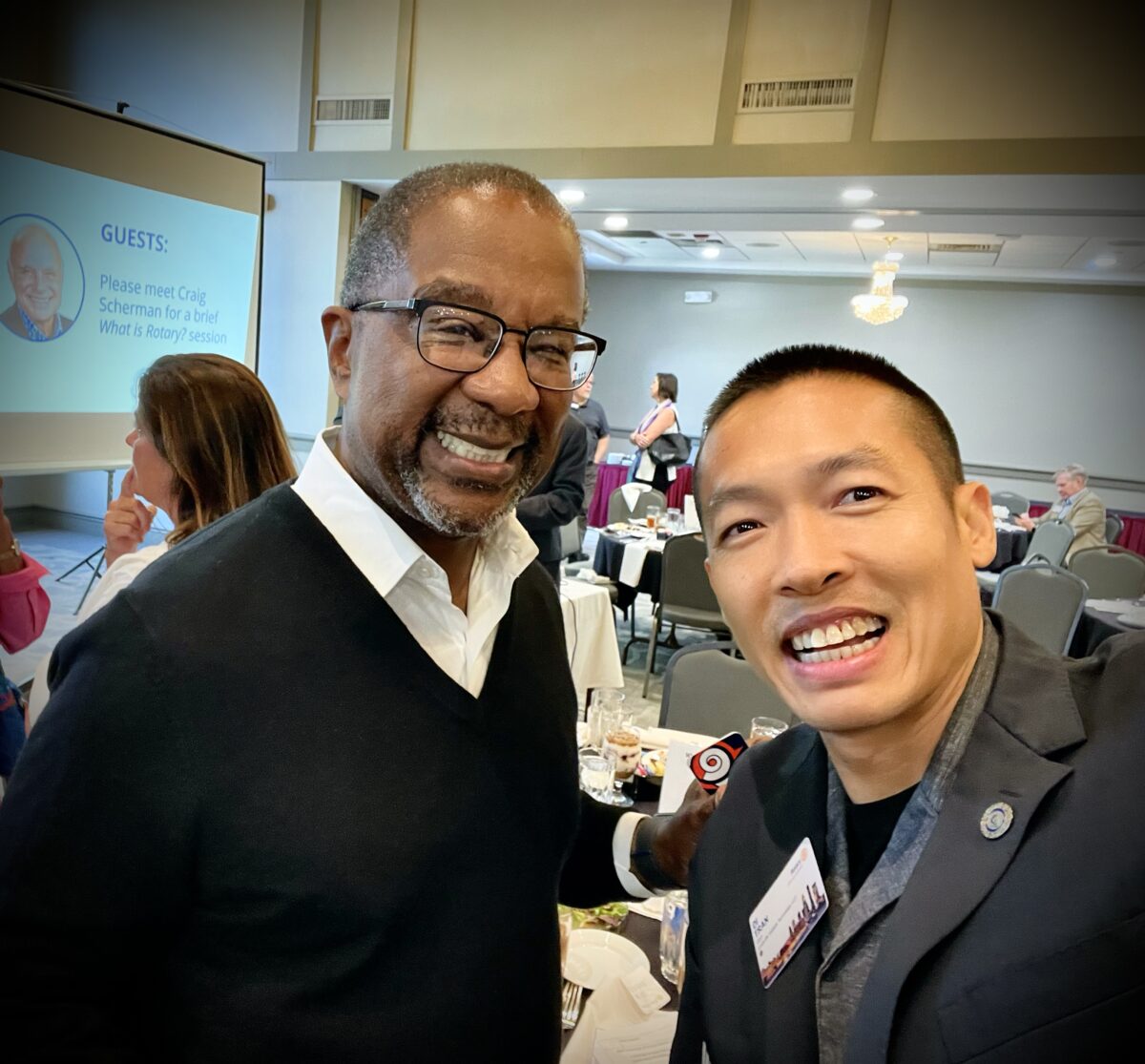The Rotary Club of Louisville, renowned as one of the largest rotary clubs globally, never ceases to inspire its audience by inviting distinguished speakers to its weekly luncheons. Today’s event was no different. A buzz of anticipation filled the room as members and guests eagerly awaited Dr. Nat Irvin II’s speech. Among the attendees was Di Tran, a man of multifaceted achievements, eagerly anticipating the enlightening discourse.
Di Tran, whose name resonates in the entrepreneurial world as a serial small business owner, also carries the laurel of being a top-tier engineer for a Fortune 50+ company. However, his most notable venture in recent years is MiaHire USA. This groundbreaking one-way virtual interview platform claims to boost hiring efficiency by a whopping 85%, positioning it as a market disruptor in the near future.
What stands out about Tran is his unwavering commitment to artificial intelligence (AI). Living and breathing AI, Tran employs multiple AI tools daily, particularly in the realms of writing and editing. His life is a testament to the future, driving a Tesla equipped with a Full-Self Driving function that autonomously navigates the roads. With over 60% of his daily activities involving AI, Tran is a living embodiment of the modern-futuristic lifestyle.
However, beyond the tech and the entrepreneurial success, lies a man deeply introspective about the rapidly evolving world. In an age where knowledge is merely a fingertip away, Tran contemplates the essence of human existence and the education of the next generation. He staunchly believes in emphasizing “spiritual life.” Whether referred to as Divine Infinity, God, energy, or any other term, Tran’s philosophy revolves around this ethereal existence. His teachings prioritize fostering creativity, nurturing intuition, developing trust, and emphasizing self-affirmation.
Dr. Nat Irvin II, an acclaimed futurist, educator, and innovator, took to the podium, capturing everyone’s attention. His extensive contributions in promoting global awareness and understanding of future driving forces resonated deeply with the audience. As he elucidated his vision, Tran felt an unmistakable alignment between Dr. Irvin’s thoughts and his own beliefs. Irvin’s emphasis on preparing for a world transformed by rapid technological and societal shifts mirrored Tran’s daily experiences and teachings.
The culmination of the speech saw a significant moment. As the applause subsided, Tran approached Dr. Irvin, expressing his appreciation. The two visionaries exchanged ideas and insights, finding common ground in their beliefs about the future, AI, and the essence of human existence. It was a powerful meeting of minds, representing the convergence of past achievements and future aspirations.
In reflection, today’s luncheon at the Rotary Club of Louisville was more than just a gathering. It was a testament to the power of visionary thinking, the importance of preparing for the future, and the need to balance technological advancements with spiritual understanding. As attendees departed, they carried with them not just the insights shared but also a renewed sense of purpose in navigating our ever-evolving world.


